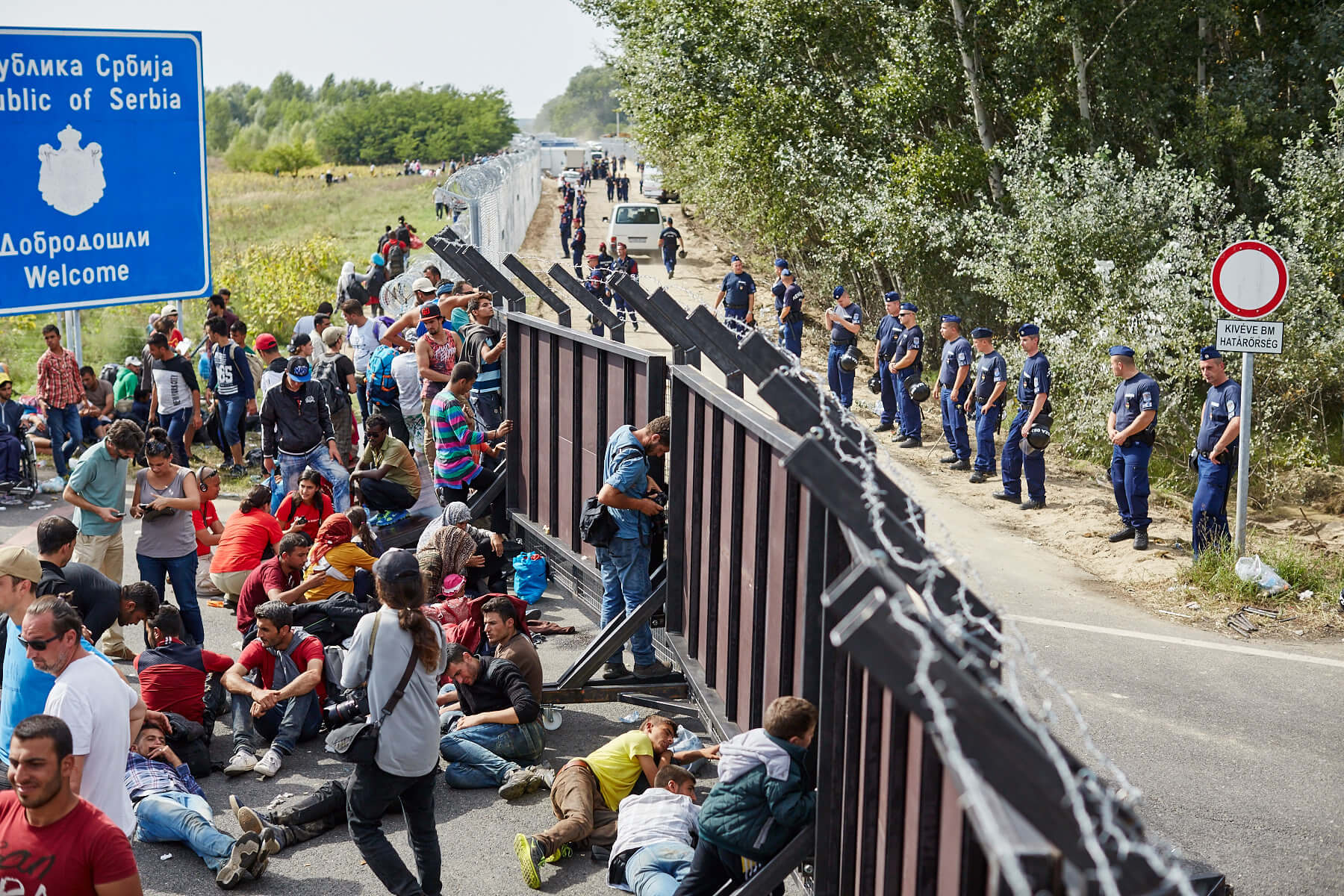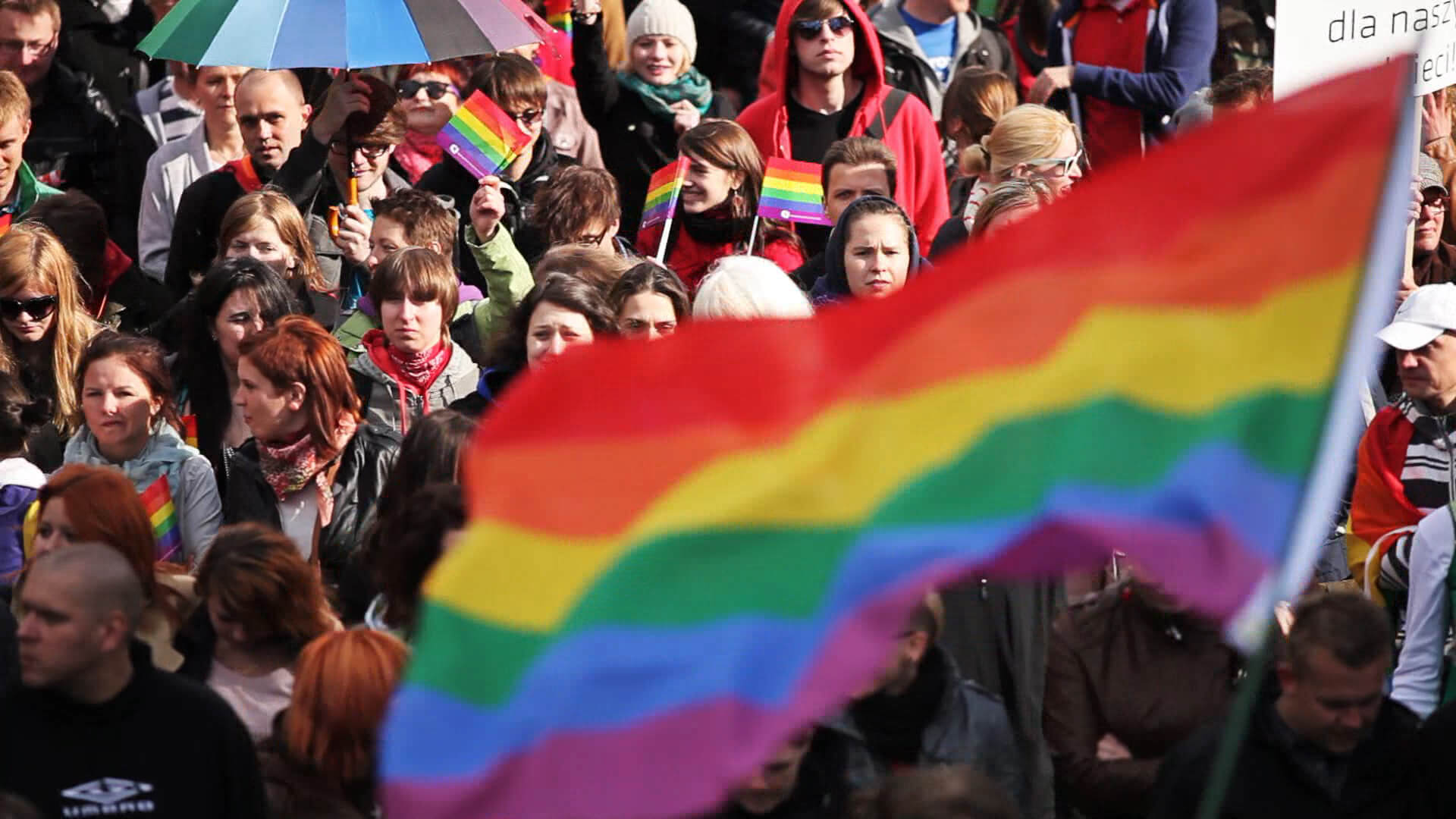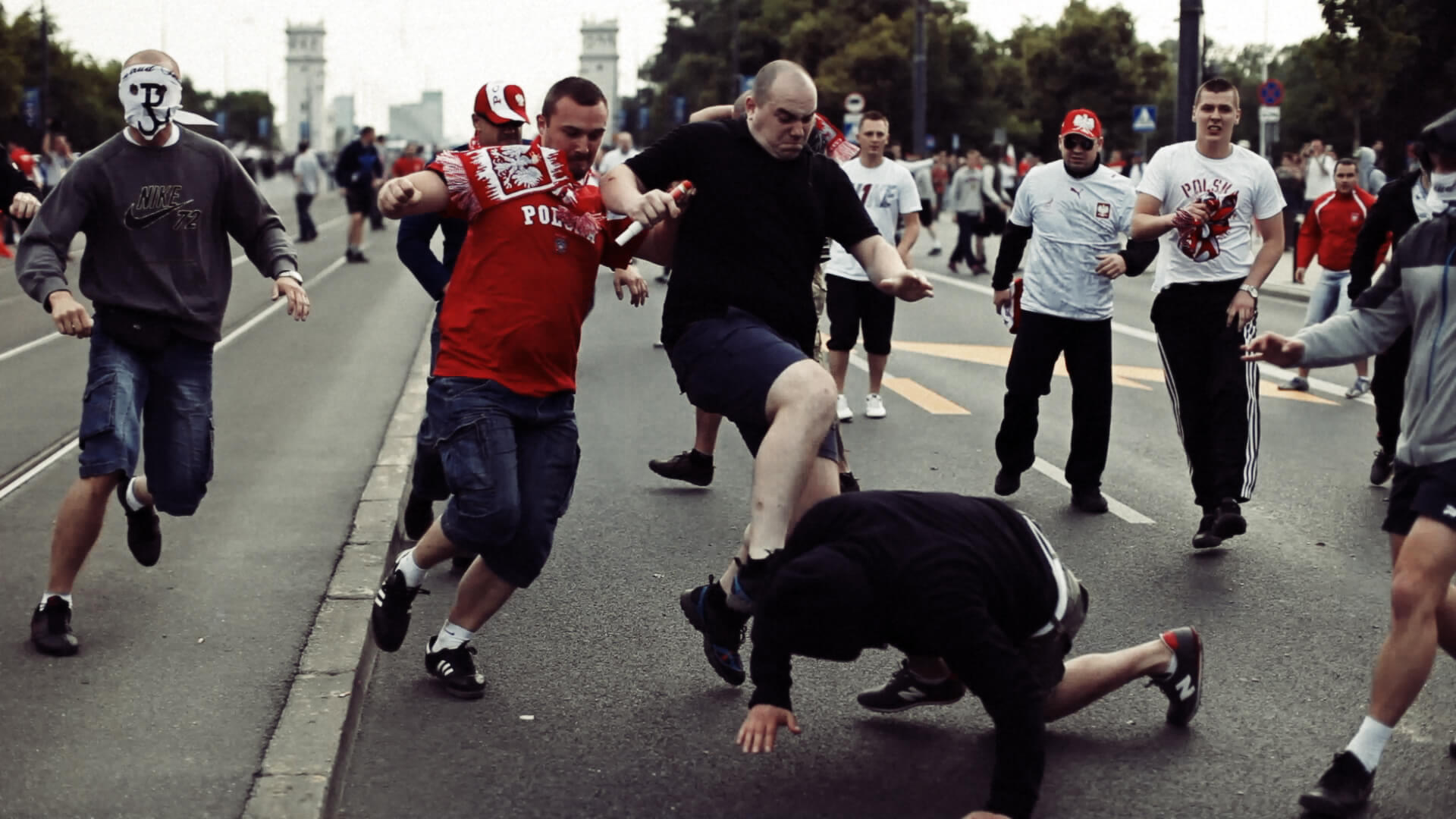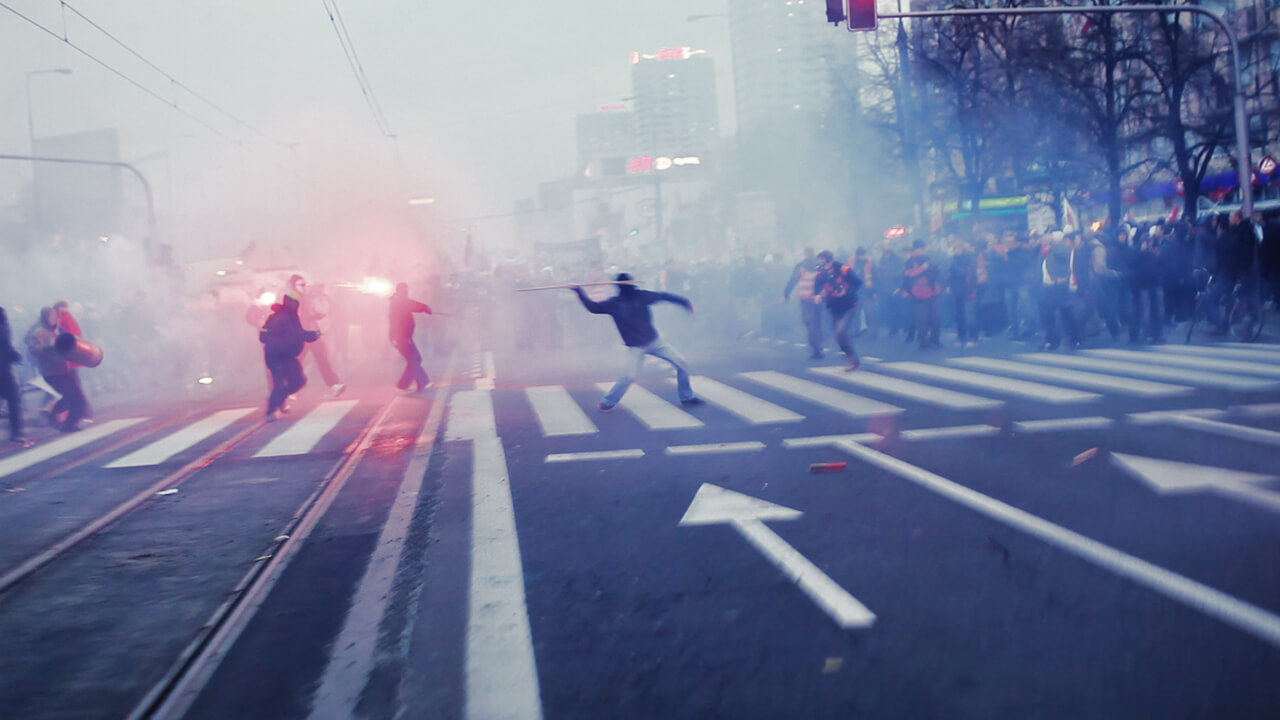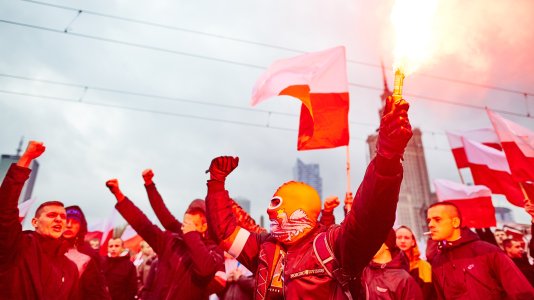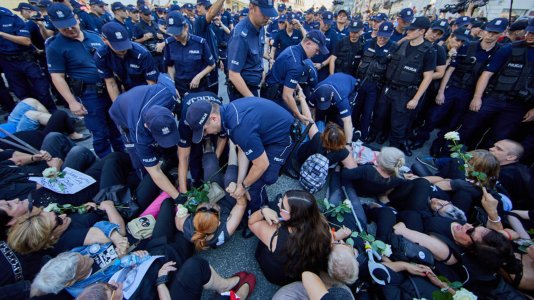Tens of thousands of nationalists marched in a demonstration organized by far-right groups in Warsaw on November 11th, 2017, as Poles celebrated their country’s Independence Day. The far-right march has become one of the largest such demonstrations in Europe, overshadowing official state observances and other patriotic events.
Participants carried banners depicting a far-right symbol dating to the 1930s and expressed sympathy for xenophobic or white supremacist ideas. Speakers spoke of standing against liberals and defending Christian values, and some participants chanted slogans such as “White Europe of brotherly nations” and “Poland for Poles.”
Police estimated that 60,000 people took part in the march, many of them young men with their faces covered or with beer bottles in hand. Families and older Poles also participated, but the presence of far-right leaders from other European countries, including Tommy Robinson from Britain and Roberto Fiore from Italy, drew criticism from human rights groups and politicians.
Despite concerns about the rise of far-right extremism in Poland and elsewhere in Europe, state broadcaster TVP described the event as a “great march of patriots,” and in its broadcasts, it portrayed the event as one that drew mostly regular Poles expressing their love of Poland, not extremists.
The controversy over the Marsz Niepodleglosci highlighted the deep divisions within Polish society over issues such as immigration, nationalism, and globalization. It also underscored the need for greater efforts to combat hate speech and to promote respect for diversity and human rights.















